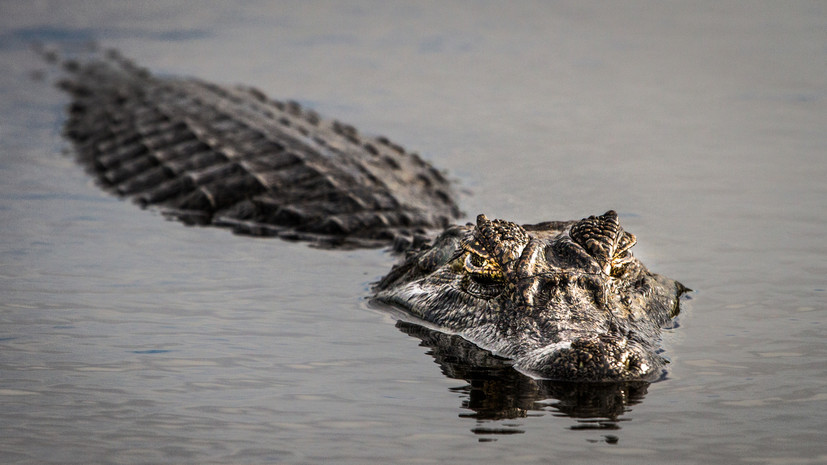Scientists from St. Petersburg University (SPbGU), together with foreign colleagues, have studied the skull of a crocodile of the genus
Portugalosuchus
.
It turned out that he is one of the oldest ancestors of modern crocodiles.
This was reported to RT by the press service of St. Petersburg State University.
The results of the study are published in the Journal of Anatomy.
Remember, crocodilomorphs
—
This is a group of reptiles, including modern and fossil crocodiles.
The only fossil remains of a crocodilomorph of the genus Portugalosuchus - the posterior half of the skull and part of the lower jaw - were discovered in Portugal in the mid-2000s.
This ancient crocodile lived on the planet in the Cretaceous period (145-66 million years ago).
In 2019, Portuguese and Spanish scientists described this species and made a CT scan of the bones, which was then sent to St. Petersburg State University for research.
Based on the data obtained, Russian scientists created a 3D model for each preserved reptile head bone.
As a result, they were able to study the internal cavities of the skull, which housed the nasopharyngeal passages, the brain, nerves, carotid arteries, and the inner ear.
“It turned out that Portugalosuchus is not only one of the oldest crocodiles known today, but also a close relative of the long-nosed gharials from India and East Asia, which are almost completely extinct today,” Ivan said in a commentary to RT. Kuzmin.
Image of Portugalosuchus skull bones
© Journal of Anatomy
The results of the analysis of digital casts of the brain and sense organs of the animal showed that the reptile heard the same sound frequencies as modern crocodiles: from 100 to 3-4 thousand Hz.
So, the ancient crocodile could hardly hear, for example, a mosquito squeak, but he would have been able to distinguish between human speech.
The sense of smell of the studied species, according to scientists, is also comparable to that of descendants - although it is less sensitive than that of predatory mammals, it is still one of the main sense organs of these reptiles.
According to the St Petersburg University paleontologist, the studies carried out not only provided new information about the position of Portugalosuchus in the general pedigree of crocodiles, but also laid the foundation for further study of the evolution of modern reptiles.
“Portugalosuchus turned out to be a representative of a group of modern crocodiles (Crocodylia).
It was previously believed that the oldest representatives of this order lived on Earth about 70–80 million years ago, but our data indicate that they appeared much earlier, about 100 million years ago.
This suggests that, in general, crocodiles appeared much earlier than previously thought, and their evolution was longer than expected, ”added Ivan Kuzmin.

